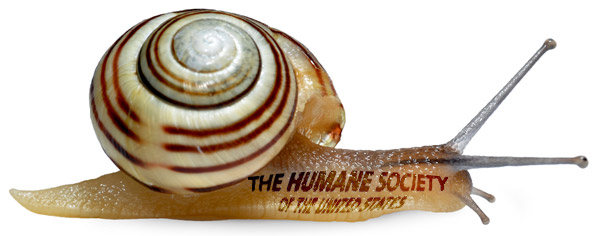The Anatomy of Inaction

Two weeks ago we gave you a recap of HSUS’s lack of action following the Gulf of Mexico oil spill. Have things picked up since then? Not exactly.
On June 10 HSUS announced that it had assembled a seven-person assessment team to go down to the Gulf and look at the oil spill’s impact on wildlife. One of the members of that team was Ed Clark, head of the Wildlife Center of Virginia. And he kept a day-by-day journal of his journey on this “interdisciplinary damage assessment mission” which was “organized and hosted by” HSUS.
Think HSUS's task force jumped right onto the beaches and got their hands dirty cleaning animals? Not quite. Here’s a summary of Clark’s entries:
Day 1: Arrival, meet and greet. Everyone sworn to secrecy until after the mission. (Again, no animal care.)
Day 2: HSUS's team has its permission to fly over the oil spill revoked for an unknown reason. Instead, they fly over regions that might be affected. (Still no actual animal care.)
Day 3: The team quietly gets aboard a ship for a “clandestine” look out on the ocean. They don’t see much, but they do manage to learn about the oil industry. In the evening, they go to a beach and see globs of oil and hermit crabs. (Still no sign that they saved any animals.)
Day 4: Another chopper ride, and a trip to a white-sand beach. (Four days and counting.)
Day 5: At last, the mighty "VIPs" (his words) Wayne Pacelle and Louisiana Senator David Vitter show up. The team heads over to Fort Jackson Oiled Bird Care Center and sees how oiled animals are cleaned. Then Pacelle, Vitter, and other officials have a meeting at which there “was a general agreement that much more had to be done to rescue and rehabilitate wildlife.”
Well, that’s dandy. There’s now an agreement that something more has to be done. Lots of agreeing, not much doing. Sound familiar yet?
In fact, Clark ends Day 5 with this note:
Now that we know what is going on … or not going on … the question is, “What are we going to do about it?”
Apparently they’re going to have meetings, and talk some more, and of course fit a few good photo ops into the schedule.
So that’s the result of a 5-day trip “organized and hosted by” HSUS—nobody really decided anything, but Wayne Pacelle has a few good pics for his next fundraising pitch.
Have things picked up after HSUS's little fact-finding delegation? Here’s what Clark said on June 21:
At this time, there are very limited opportunities for volunteers to participate in the care of wildlife in the region, and very limited opportunities to make a direct difference for oiled wildlife through your financial gifts. Wildlife care is currently being provided by professionals; volunteers are not being allowed to participate in most activities. The volunteer needs that do exist are being fully met by local organizations and people. Additionally, the efforts to clean oiled wildlife are not being funded through charitable donations. … Currently the only people legally authorized to even touch oiled wildlife are agency personnel and the organizations contracted by BP to care for oiled birds and turtles. The claims of anyone to the contrary – including organizations asking for your money or goods – should be viewed with great suspicion. (Emphasis added.)
As of Friday, HSUS is apparently still “working to find ways” to get animals affected by the oil spill to one of HSUS’s wildlife sanctuaries. Can't it do anything else?
This morning HSUS's Twitter manager announced that HSUS is taking dogs from a New Orleans shelter up to the Washington, DC area to "free up space" in Louisiana. (The DC shelters, of course—not HSUS—will likely foot the bill to care for the dogs.) Given that it’s been two months since the spill and HSUS still doesn’t have any significant action to point to, besides donating a little bit of its vegetarian dog food, this fiasco is turning into a showcase for HSUS’s relative impotence.
We're sure there’s something HSUS could do with its $192 million in reserves, if it really wanted to. But for the shameless self-promoters at HSUS—who have already released a list of “2010 Accomplishments” barely halfway through the year—publicity seems to be all that matters.



